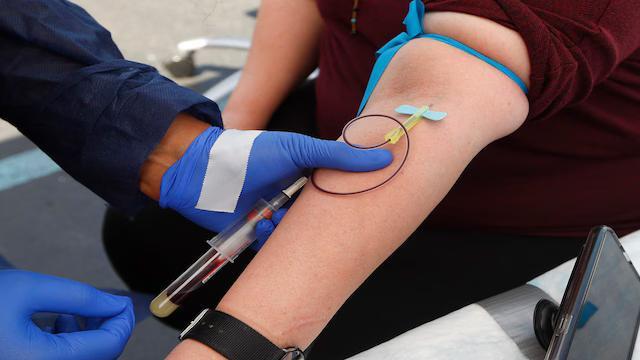
What is Gwada Negative, a Blood Group Found in Only One Person?
The human body is a complex and fascinating entity, and one of its most intriguing aspects is the diversity of blood types. While most people are familiar with the ABO blood group system, which categorizes individuals into four main types: A, B, AB, and O, there are other, less common blood types that exist. One such rare blood type is Gwada Negative, an EMM-negative blood type that has recently been recognized as the 48th blood group system.
What is Gwada Negative?
Gwada Negative is a blood group that was first identified in a woman from Guadeloupe, a French overseas department in the Caribbean. The name “Gwada” is a local nickname for the islands of Guadeloupe, and “Negative” refers to the absence of EMM antigen, a high-incidence antigen found on the red blood cells (RBCs) of nearly all humans. In other words, individuals with Gwada Negative blood type lack the EMM antigen, which is present on the RBCs of people with other blood types.
The discovery of Gwada Negative highlights the complexity and diversity of the human blood system. While most people are familiar with the ABO blood group system, there are many other blood groups that exist, each with their unique characteristics and antigens. The EMM antigen, in particular, is a high-incidence antigen that is present on the RBCs of nearly all humans, making Gwada Negative a rare and unusual blood type.
History of the Discovery
The discovery of Gwada Negative dates back to 2017, when a team of researchers from the University of California, Los Angeles (UCLA) and the University of Guadeloupe identified the blood type in a woman from Guadeloupe. The team, led by Dr. StephanieWB. Granger, used a combination of genetic and serological techniques to identify the blood type.
The researchers collected blood samples from the woman and her family members and analyzed the samples using a variety of techniques, including polymerase chain reaction (PCR) and enzyme-linked immunosorbent assay (ELISA). The results of the analysis revealed that the woman’s RBCs lacked the EMM antigen, which is present on the RBCs of people with other blood types.
After conducting further analysis, the researchers concluded that the woman’s blood type was a new and distinct blood type, which they named Gwada Negative. The discovery of Gwada Negative was announced in a scientific paper published in the journal Blood Advances in 2017.
Characteristics of Gwada Negative
Gwada Negative is a rare and unusual blood type that has several unique characteristics. Here are some of the key characteristics of Gwada Negative:
- EMM antigen negative: As the name suggests, Gwada Negative blood type lacks the EMM antigen, which is present on the RBCs of people with other blood types.
- Rare: Gwada Negative is a rare blood type, and it is estimated that only one person in the world has this blood type.
- Genetic: Gwada Negative is a genetic blood type, which means that it is determined by an individual’s genetic makeup.
- Incompatible with other blood types: Gwada Negative blood type is incompatible with other blood types, which means that individuals with this blood type cannot receive blood transfusions from people with other blood types.
Why is Gwada Negative Important?
The discovery of Gwada Negative is important for several reasons:
- Advances in knowledge: The discovery of Gwada Negative has expanded our understanding of the human blood system and has highlighted the complexity and diversity of human blood types.
- Implications for transfusion medicine: The discovery of Gwada Negative has important implications for transfusion medicine, as it means that blood banks will need to develop new strategies for matching blood types and ensuring the safety of blood transfusions.
- Potential for new medical treatments: The discovery of Gwada Negative may also lead to the development of new medical treatments, as it highlights the potential for new antigens and antibodies to be discovered.
Conclusion
Gwada Negative is a rare and unusual blood type that has recently been recognized as the 48th blood group system. The discovery of Gwada Negative has expanded our understanding of the human blood system and has highlighted the complexity and diversity of human blood types. While Gwada Negative is a rare blood type, it has important implications for transfusion medicine and may lead to the development of new medical treatments.






